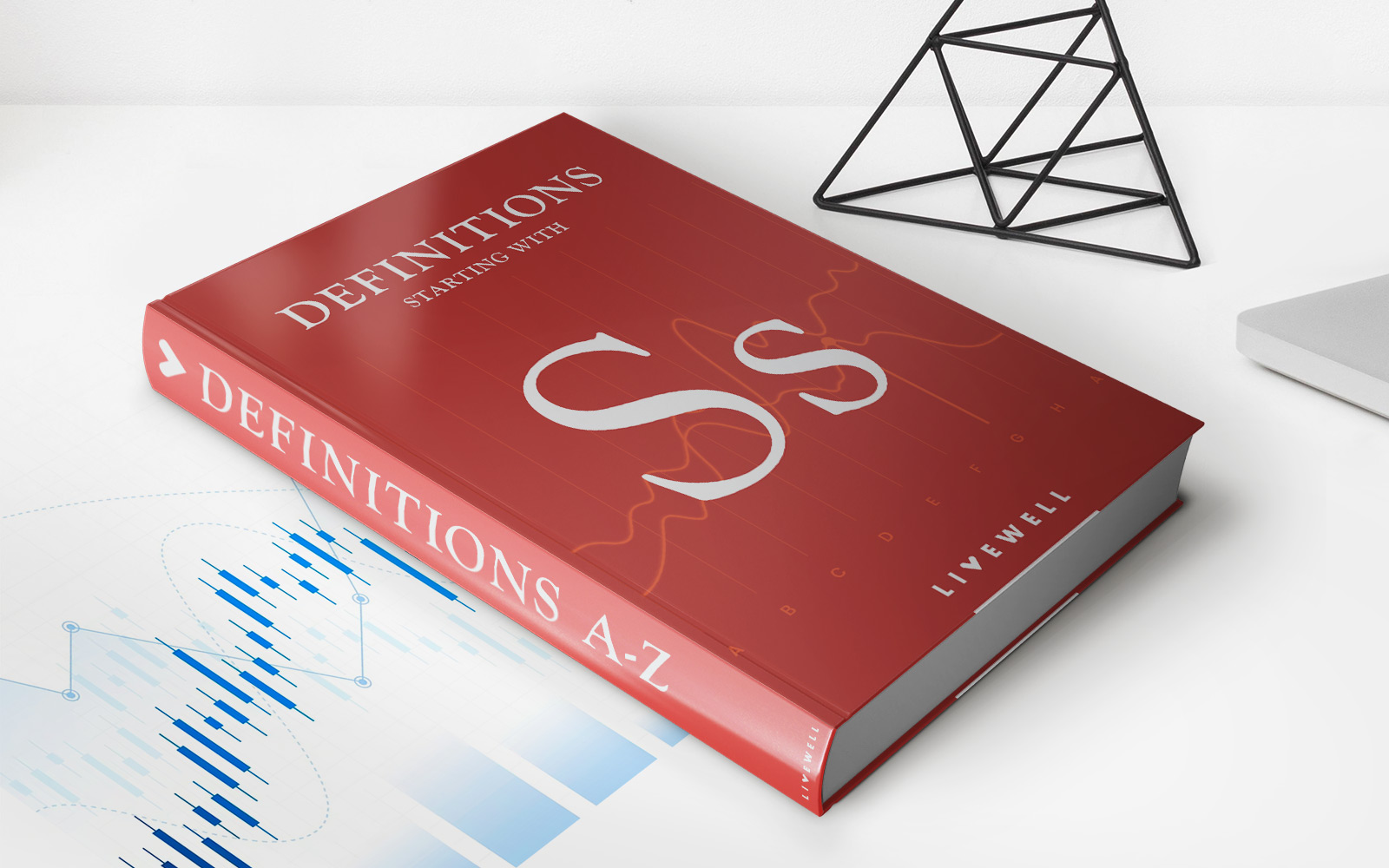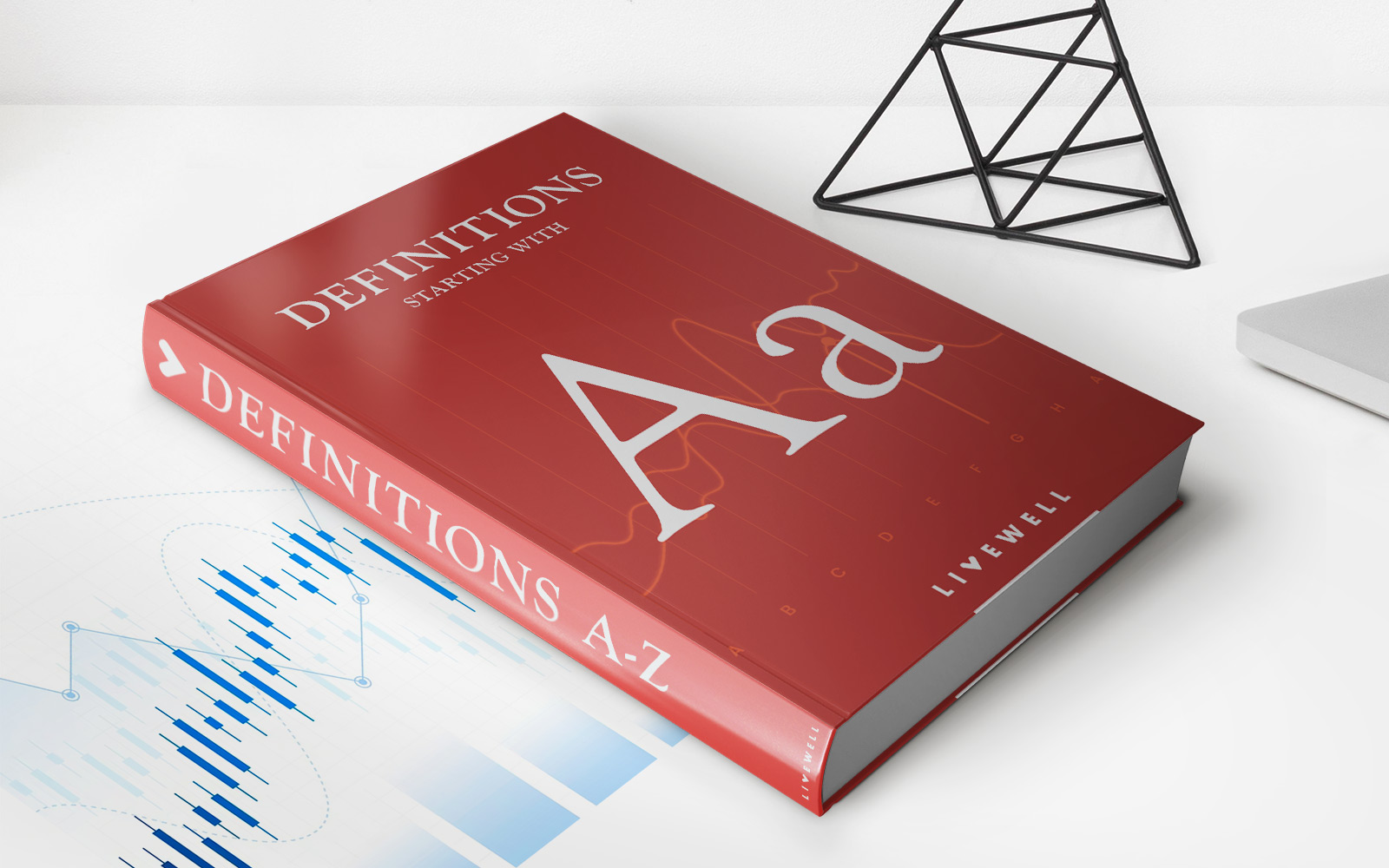Home>Finance>How Much Does A 100K Life Insurance Policy Cost?


Finance
How Much Does A 100K Life Insurance Policy Cost?
Published: November 20, 2023
Find out the cost of a 100K life insurance policy and get expert finance advice. Protect your future and loved ones with affordable coverage.
(Many of the links in this article redirect to a specific reviewed product. Your purchase of these products through affiliate links helps to generate commission for LiveWell, at no extra cost. Learn more)
Table of Contents
Introduction
Welcome to our guide on the cost of a 100K life insurance policy. Life insurance is an essential financial tool that offers protection and peace of mind to individuals and their loved ones. It provides a financial safety net in case of unexpected events, such as the policyholder’s death. While the primary purpose of life insurance is to provide a death benefit to the beneficiaries, it is also crucial to understand the cost associated with different policy options.
When it comes to determining the cost of a life insurance policy, several factors come into play. These factors can include the type of insurance policy, the age and health of the policyholder, the desired coverage amount, and the duration of the policy. Understanding these variables can help you make an informed decision when exploring life insurance options.
In this article, we will focus on a 100K life insurance policy, exploring the costs associated with different types of policies and age groups. We will also discuss factors to consider when choosing a life insurance policy that suits your needs and budget.
It is important to note that the cost of a life insurance policy can vary significantly from person to person. This is because insurance companies assess risk differently based on various factors. It is always recommended to compare quotes from different insurance providers and consult with a licensed insurance agent to determine the best policy and cost for your specific circumstances.
Factors Affecting Cost
Several key factors impact the cost of a 100K life insurance policy. Understanding these factors will help you estimate how much you might pay for your desired coverage amount. Here are the main factors that influence the cost of life insurance:
- Age: Age plays a significant role in determining life insurance premiums. Generally, the younger you are when you purchase a policy, the lower your premiums will be. This is because younger individuals are considered less risky to insure since they typically have fewer health issues and a longer life expectancy.
- Health: Your overall health also affects the cost of life insurance. Insurance companies may request a medical examination or ask you to fill out a health questionnaire to assess any potential health risks. Certain pre-existing conditions or lifestyle choices, such as smoking or having a chronic illness, can increase your premiums.
- Gender: Typically, women tend to live longer than men, so they generally pay lower premiums for life insurance. This is because they are considered lower risk to the insurance company due to their longer life expectancy.
- Smoking and tobacco use: If you are a smoker or use any form of tobacco, your life insurance premiums will likely be higher compared to non-smokers. Smoking is associated with various health risks and can significantly impact life expectancy.
- Policy duration: The length of time you want coverage for also affects the cost of a life insurance policy. Policies with shorter terms usually have lower premiums, while policies with longer terms or permanent coverage options like whole life insurance tend to have higher premiums.
- Occupation: Some professions are considered riskier than others, which can lead to higher insurance premiums. Jobs that involve hazardous conditions or extensive travel may result in increased policy costs.
These factors will vary in importance depending on the insurance company and policy details. It is crucial to disclose accurate information when applying for life insurance to ensure transparency and avoid any future complications with your coverage.
Term Life Insurance Policies
Term life insurance is one of the most popular and affordable options for individuals seeking coverage for a specific period. This type of policy provides coverage for a predetermined term, such as 10, 20, or 30 years. If the policyholder passes away during the term, the death benefit is paid out to the beneficiaries.
When it comes to the cost of a 100K term life insurance policy, it primarily depends on the policyholder’s age, health, and the length of the term. Younger individuals and those in good health typically pay lower premiums for term life insurance. On the other hand, older individuals or those with pre-existing health conditions may face higher premiums or may even be denied coverage.
The cost of term life insurance also varies based on the length of the term. Generally, longer policy terms have higher premiums because the insurance company assumes a higher risk of paying out a death benefit. Additionally, term life insurance does not build cash value over time, which makes it more affordable compared to other types of life insurance policies.
To determine the cost of a 100K term life insurance policy, it is essential to obtain quotes from different insurance providers. You can use online calculators or consult with an insurance agent to compare rates and find the most affordable option that meets your needs. Keep in mind that after the term ends, the policy may expire, and the premiums will typically increase if you choose to renew the coverage at a later stage.
Term life insurance policies offer flexibility and affordability, making them suitable for individuals who want coverage for a specific period, such as paying off a mortgage, funding education, or replacing income during their working years. It is recommended to review and reassess your insurance needs periodically to ensure your coverage aligns with your current financial situation and goals.
Whole Life Insurance Policies
Whole life insurance is a type of permanent life insurance that offers coverage for the entire lifetime of the policyholder. Unlike term life insurance, which covers a specific term, whole life insurance does not expire as long as the premiums are paid. In addition to the death benefit, whole life insurance policies also have a cash value component that grows over time.
When considering the cost of a 100K whole life insurance policy, it is important to note that whole life insurance generally has higher premiums compared to term life insurance. This is because whole life insurance provides lifelong coverage and includes a cash value component, which allows policyholders to build savings over time.
The cost of whole life insurance is determined by various factors, including the policyholder’s age, health, gender, and desired coverage amount. Premiums for whole life insurance are typically level and remain constant throughout the policyholder’s lifetime, as long as they continue to pay the premiums.
It is important to mention that the cash value component of whole life insurance policies can be accessed by the policyholder during their lifetime. This cash value can be used for various purposes, such as supplementing retirement income, paying off debts, or funding unexpected expenses. However, withdrawing from the cash value may decrease the death benefit or affect the policy’s performance.
Whole life insurance provides lifelong coverage and offers a combination of insurance protection and savings accumulation. While the premiums may be higher compared to other types of life insurance, whole life insurance can be a valuable asset for individuals looking for long-term financial security and the ability to build cash value over time.
When considering a 100K whole life insurance policy, it is recommended to consult with a licensed insurance agent or financial advisor who can assess your needs and help you determine if whole life insurance is the right option for you. They can guide you through the available policy options, explain the costs and benefits, and help you make an informed decision based on your unique financial situation and goals.
Universal Life Insurance Policies
Universal life insurance is another type of permanent life insurance that offers both a death benefit and a cash value component. This type of policy provides flexibility in terms of premium payments and death benefit coverage.
When considering the cost of a 100K universal life insurance policy, it is crucial to understand how the policy works. Universal life insurance allows policyholders to adjust their premium payments and death benefit coverage over time, within certain limits set by the insurance company. This flexibility allows individuals to customize their policy to align with their changing financial needs and goals.
Universal life insurance is known for having higher premiums than term life insurance, but potentially lower premiums than whole life insurance. The cost of a universal life insurance policy is influenced by various factors, including the policyholder’s age, health, gender, desired coverage amount, and the cash value accumulation options chosen.
The cash value component of a universal life insurance policy accumulates over time based on the premiums paid, the interest credited by the insurance company, and any charges or fees deducted from the cash value. The policyholder can often access or borrow against the cash value while the policy is in force, providing a source of funds for emergencies or financial opportunities.
Universal life insurance is suitable for individuals who seek permanent coverage and value flexibility in their policy. It can be beneficial for those who anticipate changes in their financial situation or who want to build cash value while maintaining a death benefit for their beneficiaries.
When considering a 100K universal life insurance policy, it is recommended to work with a knowledgeable insurance agent or financial advisor who can explain the intricacies of the policy, provide cost estimates, and help you evaluate if universal life insurance aligns with your financial goals and risk tolerance.
Comparison of Costs for Different Age Groups
The cost of a 100K life insurance policy can vary significantly based on the age of the policyholder. Insurance companies consider age as a crucial factor in determining premiums, as it directly correlates with the risk of mortality.
Here is a comparison of the estimated costs for a 100K life insurance policy in different age groups:
- 20s to early 30s: Younger individuals typically have fewer health issues and a longer life expectancy. Consequently, they generally qualify for the most affordable premiums. For this age group, the cost of a 100K life insurance policy can range from around $10 to $35 per month, depending on factors such as health and lifestyle choices.
- Mid-30s to early 40s: As individuals enter their middle years, the cost of life insurance gradually increases. While still relatively affordable, premiums for a 100K policy for this age group can range from about $20 to $60 per month.
- Mid-40s to early 50s: The cost of life insurance starts to rise more significantly as individuals reach their 40s and 50s. This is because the risk of health issues and mortality increases with age. For a 100K life insurance policy, expect premiums in the range of $50 to $120 per month, depending on various factors.
- Mid-50s to early 60s: As individuals approach their retirement years, life insurance premiums become noticeably higher. The cost of a 100K policy for this age group can range from about $100 to $250 per month, reflecting the increased risk associated with age-related health concerns.
- 60s and beyond: Obtaining life insurance in the later years can be more challenging and expensive. The cost of a 100K policy for individuals in their 60s and beyond may range from around $200 to $500 or more per month, depending on health conditions and other factors.
It’s important to note that these estimates are general guidelines, and actual premiums may vary based on factors such as overall health, lifestyle, and the insurance company’s underwriting criteria. It is always recommended to compare quotes from multiple insurance providers and consult with an insurance professional to ensure you find the best policy and cost for your specific age group and circumstances.
Factors to Consider When Choosing a Policy
When selecting a life insurance policy, it is crucial to consider various factors to ensure it suits your needs and budget. Here are some key factors to consider:
- Coverage amount: Determine the amount of coverage needed to provide financial security for your loved ones. Consider financial obligations such as mortgages, debts, education expenses, and income replacement.
- Type of policy: Understand the differences between term life insurance, whole life insurance, and universal life insurance. Each type has its own advantages, costs, and features, so choose one that aligns with your financial goals and circumstances.
- Premium affordability: Assess your budget and ensure that the premiums of the policy you choose fit comfortably within your financial means. It is important to maintain the policy in force by paying premiums consistently.
- Policy duration: Determine how long you need the coverage. For temporary needs, a term life insurance policy may be more suitable, while permanent needs may require whole life or universal life insurance.
- Health and age: Understand that your health and age can significantly affect the cost and availability of life insurance. Be prepared to undergo a medical examination or provide detailed health information during the underwriting process.
- Additional riders: Consider any additional riders or options available with the policy that may provide extra benefits, such as disability or critical illness coverage.
- Insurance company reputation: Research the reputation and financial stability of the insurance company you’re considering to ensure they will be able to fulfill their obligations in the long term.
- Financial advisor or insurance agent: Seek guidance from a licensed insurance agent or financial advisor who can provide expert advice tailored to your specific needs and help you navigate the complexities of life insurance.
Remember that life insurance is a long-term commitment, so it’s essential to carefully evaluate your options, consider your goals and circumstances, and seek professional advice if needed. Regularly review your policy to ensure it continues to meet your evolving needs and make necessary adjustments as circumstances change.
Conclusion
Choosing the right life insurance policy and understanding its cost is a critical step in securing financial protection for yourself and your loved ones. The cost of a 100K life insurance policy can vary depending on factors such as age, health, policy type, and desired coverage duration. It’s essential to consider these factors before making a decision.
Term life insurance provides temporary coverage and is typically more affordable, making it suitable for individuals with specific financial goals or obligations. Whole life insurance offers lifelong coverage and a cash value component, but comes with higher premiums. Universal life insurance offers flexibility in premium payments and death benefit coverage.
Costs for life insurance policies can also vary by age group, with younger individuals generally paying lower premiums compared to older individuals. It’s important to obtain quotes from multiple insurance providers and consult with professionals to find the most affordable policy that meets your needs.
When choosing a policy, consider factors such as coverage amount, premium affordability, policy duration, health status, and additional riders. Review the reputation and financial stability of the insurance company and seek guidance from licensed professionals.
Remember that life insurance is a long-term commitment, and it’s crucial to regularly reassess your needs and make adjustments as necessary. By taking the time to research and make informed decisions, you can ensure that you have the right life insurance coverage in place to provide financial security and peace of mind for you and your loved ones.














